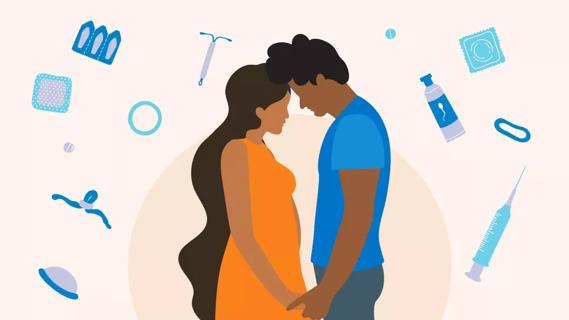For starters, is sex really exercise?

Advertisement
Cleveland Clinic is a non-profit academic medical center. Advertising on our site helps support our mission. We do not endorse non-Cleveland Clinic products or services. Policy
Patients often ask me: Is sex good for your heart?
The question seems simple. The answer is complicated. In part because of the limits of what research can tell us. But we do have a strong sense that sex fits in with a heart-healthy lifestyle.
Below are answers to five common questions.
Yes — but it’s not much exercise. You’re not going to burn your daily calories during an average sexual encounter (and few people want to admit to being average).
Assuming an average of five to 15 minutes for sex, you get about the same amount of activity as walking a mile in 20 minutes. If your partner is on top, they reach a heart rate of around 120. The partner on the bottom reaches about 110.
In other words, you get a minimum of cardiovascular exercise from sex. Don’t count on it as your only workout.
Probably. For example, one study found that men who had sex twice a week or more were less likely to develop cardiovascular disease than those who had sex once a month or less. Research like this typically focuses on men because more men have heart disease. But we generally apply the same reasoning to women, too.
Studies such as this don’t prove that sex prevents heart disease. But they do suggest sex is part of an overall heart-healthy lifestyle. We tend to think of sex as a “marker” for your health. If you’re having more sex, there’s a good chance you’re fitter and more active to begin with. And if you’re too out of shape to enjoy sex, that may be motivation for lifestyle changes.
Advertisement
Probably not. For example, observational studies can establish a correlation. But they can’t prove a cause-effect relationship.
To prove cause and effect, you need a randomized clinical trial with a control group that abstains from sex for a long time period. This seems unlikely. It’s one reason among many that we can say sex is probably good for your heart — but we can’t say it definitively.
Not in the vast majority of cases. Patients often ask this after a heart attack or diagnosis of heart disease. If you’re fit enough for sex, we encourage it.
Your blood pressure will go up during sex, typically to a peak of around 160/90. That’s comparable to what happens during a brisk run for a few minutes, and it goes back down afterward.
There has been evidence that sex with an unfamiliar partner — like sex outside of a marriage — can be risky for men with heart disease. Men have even died during sex, but it’s rare.
Yes, it likely does. Even if it’s not a high-intensity workout, regular sex can be a rewarding part of an overall healthy lifestyle. It can make you happier, more relaxed and less stressed.
Put simply: Sex is probably helpful to your heart and overall health. And because it’s not harmful to your heart (except in rare cases), “probably” might be all the answer you need.
Advertisement

Sign up for our Health Essentials emails for expert guidance on nutrition, fitness, sleep, skin care and more.
Learn more about our editorial process.
Advertisement

Arousal without orgasm can be uncomfortable, but it’s no reason to pressure sexual interactions

Some foods are thought to rev up your sex drive, despite lack of scientific evidence

If anxiety is keeping you from having the sex life you want, communication, education and therapy can help

Anorgasmia is a fairly common concern with a wide range of physical and psychological causes

Your sexual history directly influences your physical, mental and emotional health in a multitude of ways

‘Safer sex’ means STI prevention, avoiding unintended pregnancies and psychologically safe practices for everyone

Medications and therapy can help get your groove back

It’s perfectly normal for gas pockets to ‘evacuate’ during the motions of sex

Even small moments of time outdoors can help reduce stress, boost mood and restore a sense of calm

A correct prescription helps your eyes see clearly — but as natural changes occur, you may need stronger or different eyeglasses

Both are medical emergencies, but they are very distinct events with different causes